[Newsbeat] The British Asian cancer survivors tackling breast taboo
Image source, Bhandal familyImage caption, Sonia was diagnosed with grade three breast cancer when she was 27By Raj Kaur BilkhuBBC Asian Network"Even though I watched my mum battle from a young age, I never used to check my breasts. We didn't even talk about it."When Sonia Bhandal was 14, her mum passed away from breast cancer, six years after being diagnosed. Then, when she was 27, Sonia found out she had the same cancer.Cancer can be a tricky issue to discuss in the Asian community - and when it comes to breast cancer there is added stigma.Sonia feels Asian women face added pressures when they have a long-term illness because their marriage or fertility prospects are often questioned."I was dating during my treatment and remember being super-ill, fresh out of hospital and an aunt saying 'will his parents accept you?'," she tells BBC Asian Network."I was already just trying to survive day by day and to have questions about my future, my marriage and fertility from people close to you,
![[Newsbeat] The British Asian cancer survivors tackling breast taboo](https://www.9020blog.com/uploads/images/202309/image_750x_6512c6db0c0e2.jpg)
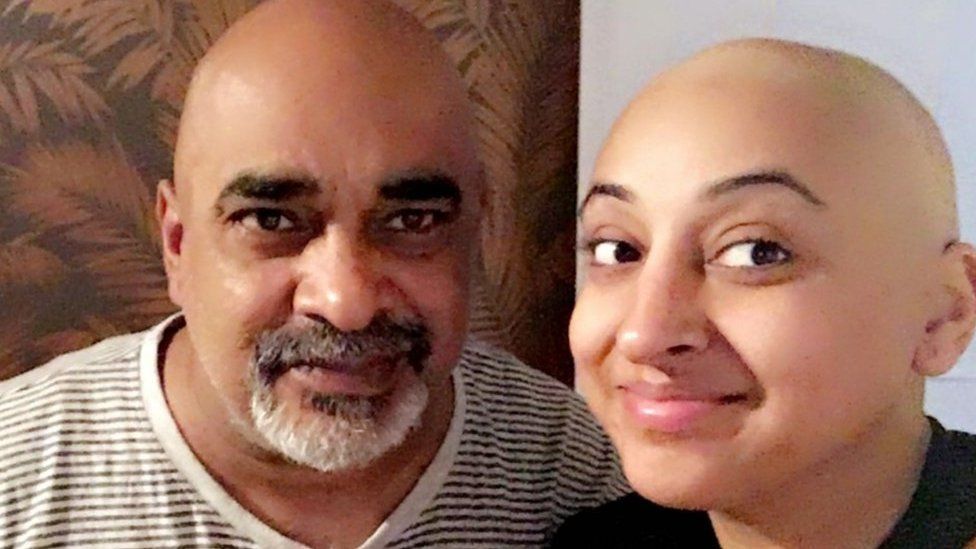
"Even though I watched my mum battle from a young age, I never used to check my breasts. We didn't even talk about it."
When Sonia Bhandal was 14, her mum passed away from breast cancer, six years after being diagnosed. Then, when she was 27, Sonia found out she had the same cancer.
Cancer can be a tricky issue to discuss in the Asian community - and when it comes to breast cancer there is added stigma.
Sonia feels Asian women face added pressures when they have a long-term illness because their marriage or fertility prospects are often questioned.
"I was dating during my treatment and remember being super-ill, fresh out of hospital and an aunt saying 'will his parents accept you?'," she tells BBC Asian Network.
"I was already just trying to survive day by day and to have questions about my future, my marriage and fertility from people close to you, it's heartbreaking.
"And that's why people don't want to talk about it, because they don't want their aunt or anyone else to give these opinions."
'Fear around cancer'
Research by Breast Cancer Now suggests there is a lower uptake of breast screening among south Asians, which means they are often diagnosed at a later stage and have reduced survival rates than white women.
It suggested cultural and language barriers could play a part in this.
"There are barriers around talking about breasts in the community and checking breasts is often seen as a sexual thing," says Manveet Basra, the charity's associate director of public health.
"There's fear around cancer generally and a feeling of fatalism.
"So some cultural or religious beliefs that a cancer diagnosis is off the back of a sin from a past life and karma."
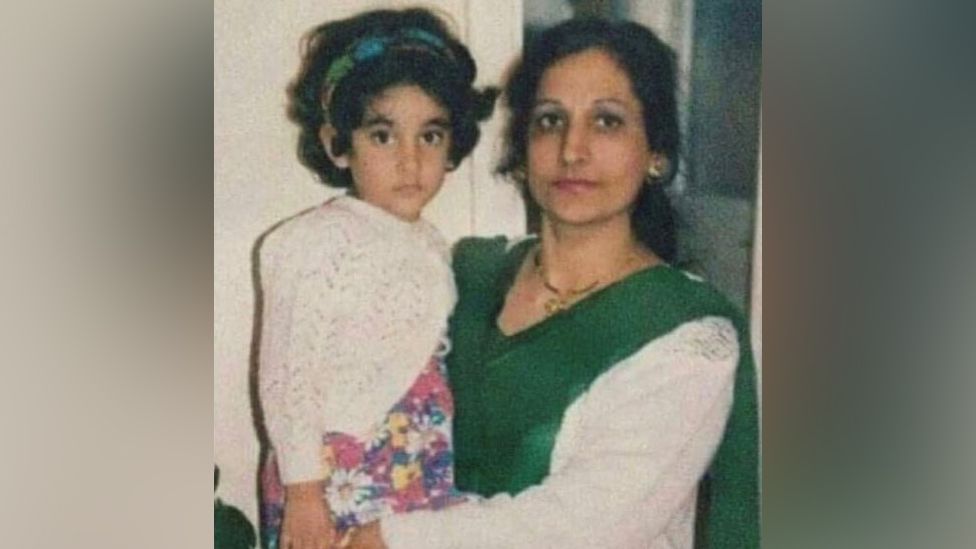
Sonia says she was "getting a lot of pain in my breast" before she discovered she had inherited an altered gene called BRCA that increased her risk of developing breast cancer.
Both her mum and aunt had previously died from the disease.
"I rolled over in bed and my arm scraped my breast and it felt like a stone," she says.
"I just burst into tears, my gut just knew what it was."
Having that particular gene also means there is a higher than average chance of the cancer returning, and put Sonia at increased risk of ovarian cancer too.
So she opted to have a double mastectomy - having both breasts removed - because she "didn't want to risk having to go through chemo again".
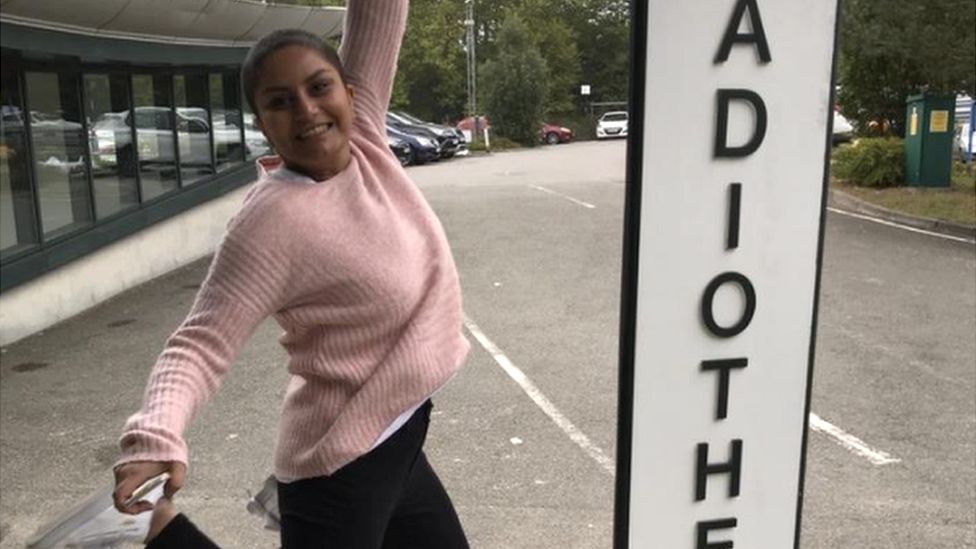
Sania Ahmed is a doctor trying to use her platform to raise awareness of how breast cancer is perceived in the south Asian community.
"I was 24 years old when I was diagnosed and it felt like I was labelled with a life sentence," she says.
"Women in our culture don't prioritise their health. And because the breast is seen as a private area, breast examination [often] doesn't exist.
"I've grown up in a loving Muslim family but women are still seen as fulfilling the role of a wife and having kids."
Sania says she tries to use her role in the community to encourage better healthcare.
"As a doctor, I'm always encouraging my patients to check their breasts," she says.
"If something feels odd then just get it looked at."
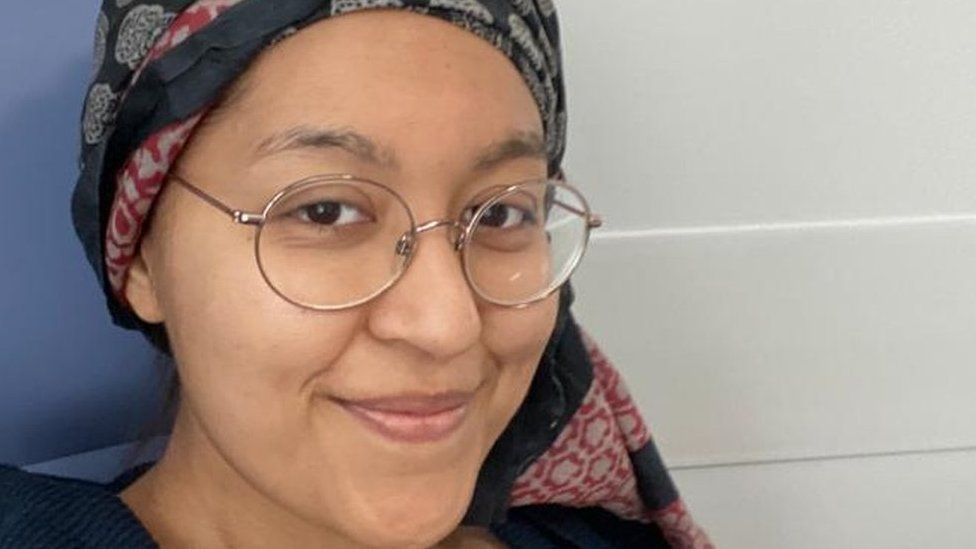
For Dipika Saggi, breast cancer wasn't something she had dealt with in her immediate family.
She had a "shooting pain" during the Covid pandemic and her GP referred her for a biopsy straight away.
Dipika, who was 35 at the time, was then told she was already "quite far along", with the tumour being at 8cm.
"It was a rapid emotional rollercoaster of confusion, pain and acceptance," she says.
"You don't think you can get cancer when you're young. Maybe that's why I got help a lot later."
Dipika says some comments from people around her also made things harder, including references to karma or "God's will".
"I often heard from elders 'everything happens for a reason' or 'God only challenges his strongest' and I would think 'so you think God thinks I deserve to have cancer?'" she says.
Manveet feels younger members of the community like Sonia, Dipika and Sania can help to change mindsets.
"Being breast aware, knowing the signs and symptoms can potentially help you and others in your family," she says.
If you are affected by issues raised in this article, help and support is available via the BBC Action Line You can get more information on breast cancer screening here.


Related Topics
What's Your Reaction?









![[Sport] Security operation ongoing off Ireland's south-east coast](https://www.9020blog.com/uploads/images/202309/image_650x433_6512c6dc21d1c.jpg)



![[Entertainment] Idris Elba: Actors in video games like Phantom Liberty is 'sign of the times'](https://www.9020blog.com/uploads/images/202309/image_750x415_6512c6d8254e4.jpg)
![[World] Ukraine war: Russia demands UN court throw out case against it](https://www.9020blog.com/uploads/images/202309/image_750x415_650957bed2ad4.jpg)
![[Entertainment] Olivia Rodrigo: Second album Guts goes straight to number one in UK](https://www.9020blog.com/uploads/images/202309/image_750x415_65055ae91776d.jpg)
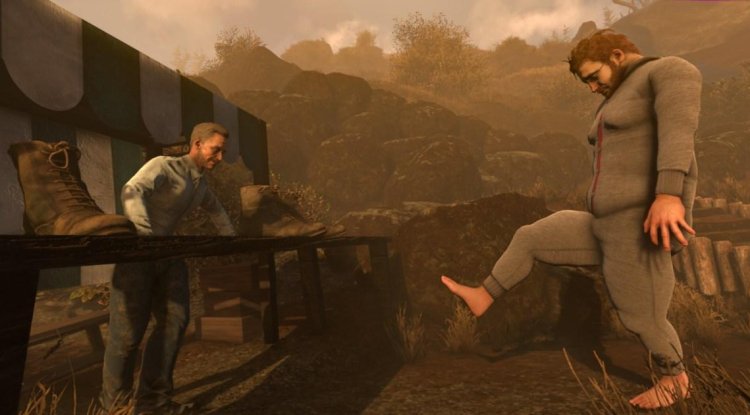
![[Business] BMW investment secures future of Mini factories](https://www.9020blog.com/uploads/images/202309/image_750x415_64ffe58cc2284.jpg)
![[Uk] Angel Lynn: Paralysed woman speaks first word since kidnap injuries](https://www.9020blog.com/uploads/images/202309/image_750x415_64ffe58b138bf.jpg)
![[World] Morocco earthquake: British tourists describe 'terrifying' moment quake hit](https://www.9020blog.com/uploads/images/202309/image_750x415_64fd727cd7697.jpg)
![[Uk] UK heatwave: Heat-health alert in place as temperatures to hit 32C](https://www.9020blog.com/uploads/images/202309/image_750x415_64f6e2e02023d.jpg)
![[Sport] Mason Greenwood transfer news: Getafe sign Manchester United forward](https://www.9020blog.com/uploads/images/202309/image_750x415_64f307f56c6f5.jpg)
![[Entertainment] Ana de Armas: Judge throws out legal action over Yesterday film trailer](https://www.9020blog.com/uploads/images/202308/image_750x415_64f0362499182.jpg)